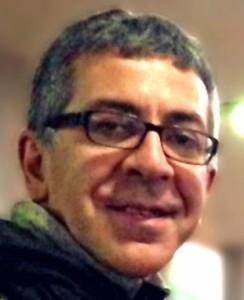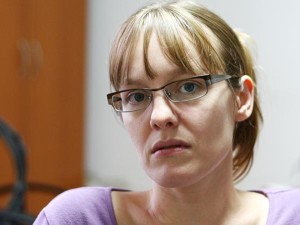WORKSHOPS (FOR STUDENTS AND JUNIOR FACULTY MEMBERS):
| LITERARY TRANSLATION FROM BULGARIAN TO ENGLISH: PITFALLS AND BEST PRACTICES | Angela Rodel | Friday, November 25th,11:30-13:00, room 241 |
| WHO DOES WHAT TO WHOM? THE GRAMMAR OF BLAMING | Mario Saraceni | Friday, November 25th,16:30-18:00, room 243 |
| NEW PERSPECTIVES ON ENGLISH LANGUAGE STUDIES: studying language indexicalities in transnational music cultures | Britta Schneider | Saturday, November 26th, 11:30-13:00, room 243 |
| HOW TO USE DIGITAL TOOLS AND SOCIAL MEDIA FOR RESEARCH AND TEACHING | Paweł Frelik | Saturday, November 26th, 14:00-15:30, room 243 |
N. B. You need to register for the workshops HERE.
LITERARY TRANSLATION FROM BULGARIAN TO ENGLISH: PITFALLS AND BEST PRACTICES
Friday, November 25th, 11:30-13:00, room 241
This workshop will be a hands-on seminar for students wishing to develop their English to Bulgarian literary translation skills. We will discuss the typical linguistic and stylistic pitfalls encountered by translators working in this direction, then put our discussions to immediate use in tackling a few example texts. No prior experience in translating literature from English to Bulgarian is needed!
WHO DOES WHAT TO WHOM? THE GRAMMAR OF BLAMING
Mario Saraceni
November 25th, 16:30-18:00, room 243
Focusing primarily on newspaper texts, in this workshop participants will examine ways in which responsibility is attributed to social actors. The analysis will be based on comparing how newspapers report the same event differently, and how such difference is encoded in grammar. The analytical framework will be that of Transitivity, as understood in Functional Grammar. No prior knowledge will be required.
NEW PERSPECTIVES ON ENGLISH LANGUAGE STUDIES: studying language indexicalities in transnational music cultures
Saturday, November 26th, 11:30-13:00, room 243
In this data-based student workshop, we will discuss the relationship of language and social categorisations in an age of transnationalism. To this end, we will first talk about the traditional links of language and nation or ethnicity. Afterwards, we will look at and listen to empirical data from different research contexts. Students will be introduced to examples of lyrics from different music styles and to some aspects of the cultural embedding and history of these musical productions. They are then asked to analyse the symbolic meanings and cultural ties the language choices in these lyrics express. Students will furthermore be asked to analyse data from interviews with members of Communities of Practice constituted through Salsa music and dance in which these talk about their language practices.
Both data sets will stimulate discussion on the question which indexical ties and symbolic meanings of language choices we find in cultural contexts that are not framed in national discourses. This leads to the question of language ownership and social functions of language in an age of globalisation. Students have to participate actively in this class – and will be rewarded with an inspiring and fun session in which their concepts and thoughts are of prime interest.
HOW TO USE DIGITAL TOOLS AND SOCIAL MEDIA FOR RESEARCH AND TEACHING
Saturday, November 26th, 14:00-15:30, room 243
In many ways, the title of the workshop is self-explanatory. I will not spend time convincing the participants that they should use digital tools and social media in their research and teaching. What I will do instead is suggest a number of specific solutions (tools, services, practices) and demonstrate how they can expedite and enrich academic practice in such areas as information collection and retrieval, citation management, and class assignments. Since there will be a separate workshop with links and suggestions, the participants may want to bring in their own notebooks, if possible.
(N.B. Participants need to bring their own tablets or other electronic devices).


